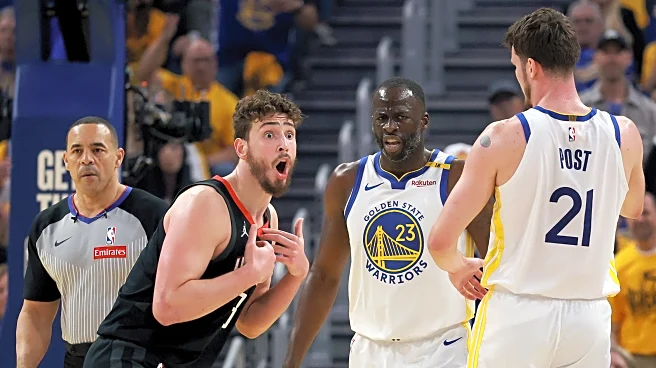What separates championship-level execution from playoff pretenders? The answer lies not in box scores or advanced metrics, but in how organizations process adversity when the stakes reach their peak.
Alperen Şengün’s recent podcast commentary reveals everything you need to understand about Houston’s fundamental disconnect from championship mentality. Speaking on “Socrates Dergi,” the Turkish All-Star delivered a masterclass in projection: “They fouled a lot. In the playoffs, they don’t call it. But they were the ones crying all series about fouls not being called.”
This from the franchise that commissioned a forensic audit of Game 7 in 2018, meticulously cataloging 81 alleged missed calls worth 18.6 phantom points. The same organization where former GM Daryl Morey proclaimed they’d win seven out of ten hypothetical series replays against a Warriors team that had systematically dismantled their championship aspirations.
But here’s what Şengün’s comments actually reveal: Houston still doesn’t understand the strategic psychology that separates contenders from champions.
The foul differential in their 2025 first-round elimination tells the real story. Golden State absorbed 150 fouls compared to Houston’s 124—a 26-call advantage for the Rockets. Yet somehow, in Houston’s narrative framework, they remain the victims of officiating bias. This isn’t statistical analysis; it’s cognitive dissonance weaponized as competitive strategy.
AND WAIT DIDN’T THEIR COACH SAY THEY LIKE IT WHEN THE GAME IS CHIPPY?!
Why does this matter beyond simple rivalry dynamics? Because Houston’s perpetual grievance culture exposes their fundamental misunderstanding of what championship basketball actually requires. While the Warriors spent the last decade perfecting their system’s ability to execute under pressure, Houston perfected their ability to externalize failure.
Consider the tactical reality of that Game 7 blowout. The Warriors didn’t win 103-89 because of favorable whistle distribution. They won because Buddy Hield recognized every defensive rotation breakdown and exploited Houston’s execution flaws with surgical precision. His 33 points and nine three-pointers represented everything the Rockets couldn’t match when elimination pressure peaked.
The deeper strategic question becomes: how does Houston’s victim complex actually impact their competitive ceiling? When your organizational identity centers around external blame rather than internal improvement, you create a psychological framework that inherently limits championship potential.
Şengün inadvertently confirmed this analysis with his most honest assessment: “The Warriors were probably the one team that would have gave us the most trouble, and we drew them.” That statement contains more strategic insight than Houston’s entire audit of 2018 Game 7.
The Warriors represent everything Houston aspires to become but refuses to acknowledge: a franchise that transforms adversity into advantage, that understands championship basketball as internal mastery rather than external validation. When Golden State faced elimination scenarios, they responded with systematic execution. When Houston faced the same pressure, they responded with systematic excuse-building.
The Kevin Durant acquisition represents Houston’s latest attempt to solve this equation through talent rather than culture. But Durant’s championship experience came while wearing Warriors blue and gold—learning the exact competitive psychology that Houston continues to reject.
What makes this dynamic so compelling from a strategic perspective is how it reveals the true championship gap between these franchises. The Warriors accumulated four titles not through favorable officiating, but through understanding that elite basketball requires accepting responsibility for outcomes while maintaining execution under maximum pressure.
Houston’s alternative approach—transforming every loss into evidence of external conspiracy—represents the antithesis of championship mentality. You cannot audit your way to a title. You cannot grieve your way to greatness.
The Warriors have spent years demonstrating what championship culture actually looks like: internal accountability, systematic improvement, and the psychological resilience to execute when everything matters most. Houston’s response? A decade-long seminar on how victim complex becomes competitive identity.
This is why Golden State continues to represent Houston’s ceiling rather than their peer. Until the Rockets choose internal mastery over external blame, they’ll remain trapped in their own psychological prison…forever analyzing why they lost instead of understanding how to win.
The Warriors will gladly accept being Houston’s villain if it means the Rockets keep choosing litigation over elevation.









